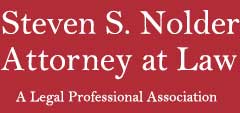“Places of prostitution and people who knowingly frequent them to engage a prostitute are not sanctioned by society,” the court said.
In Maine, Mark Strong, a businessman was charged with 46 criminal counts of invasion of privacy for videotaping a prostitute’s sexual encounters with other men. The State Supreme Court dismissed the invasion of privacy charges against him (he is still facing prostitution charges) claiming that the johns who paid to have sex with Strong’s business partner, a Zumba dance instructor, Alexis Wright, had no reasonable objective expectation of privacy. ( See Maine v. Strong (Feb. 15, 2013) decision (PDF) ).
“Places of prostitution and people who knowingly frequent them to engage a prostitute are not sanctioned by society,” the court said. “Accordingly, it is objectively unreasonable for a person who knowingly enters a place of prostitution for the purpose of engaging a prostitute to expect that society recognizes a right to be safe from surveillance while inside.” In this case, the “places” of prostitution included Ms. Wright’s home, the dance studio (which had completely covered windows), and a locked office suite on the second floor.
Although this case focused on a Maine statute for criminal invasion of privacy, the analysis regarding subjective and objective expectations of privacy could be extended to other state and federal situations. Additionally, although the facts of this case involved a private citizen videotaping, the holding of the case was based on expectations of privacy, which could be extended to 4 th Amendment cases where the government is the one involved in surveillance.
Does this reasoning mean that if you engage in criminal activity, you have no expectation of privacy? Even if you go behind locked doors inside someone’s home or inside a locked, second floor office, if you are engaged in criminal activity, your expectation of privacy is not objectively reasonable? Does this mean that when any private property is used for criminal activity, all protections form surveillance – both public and private – disappear?
The holding of this case, although obviously a “win” for Mr. Strong’s legal defense team, has other criminal defense attorneys scratching their heads and hoping the “expectation of privacy” analysis regarding illegal activities is limited to the precise facts of this case and the specific Maine statute.

